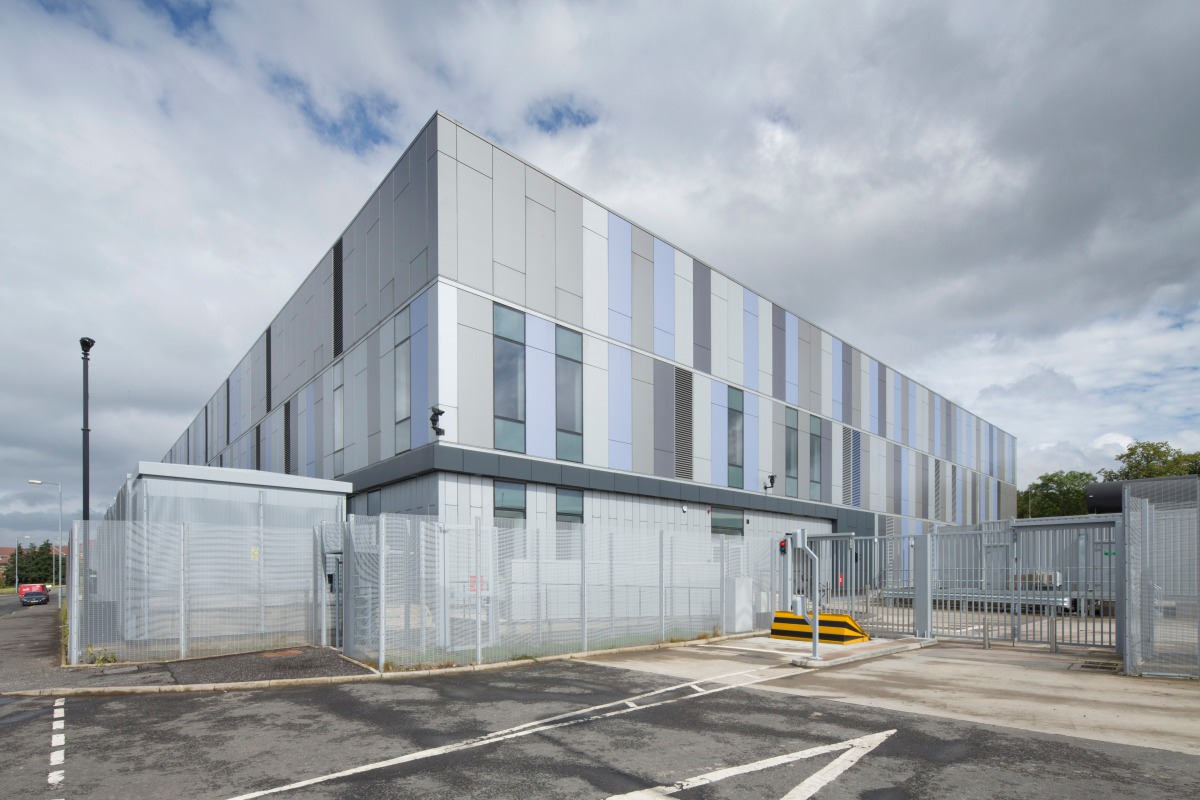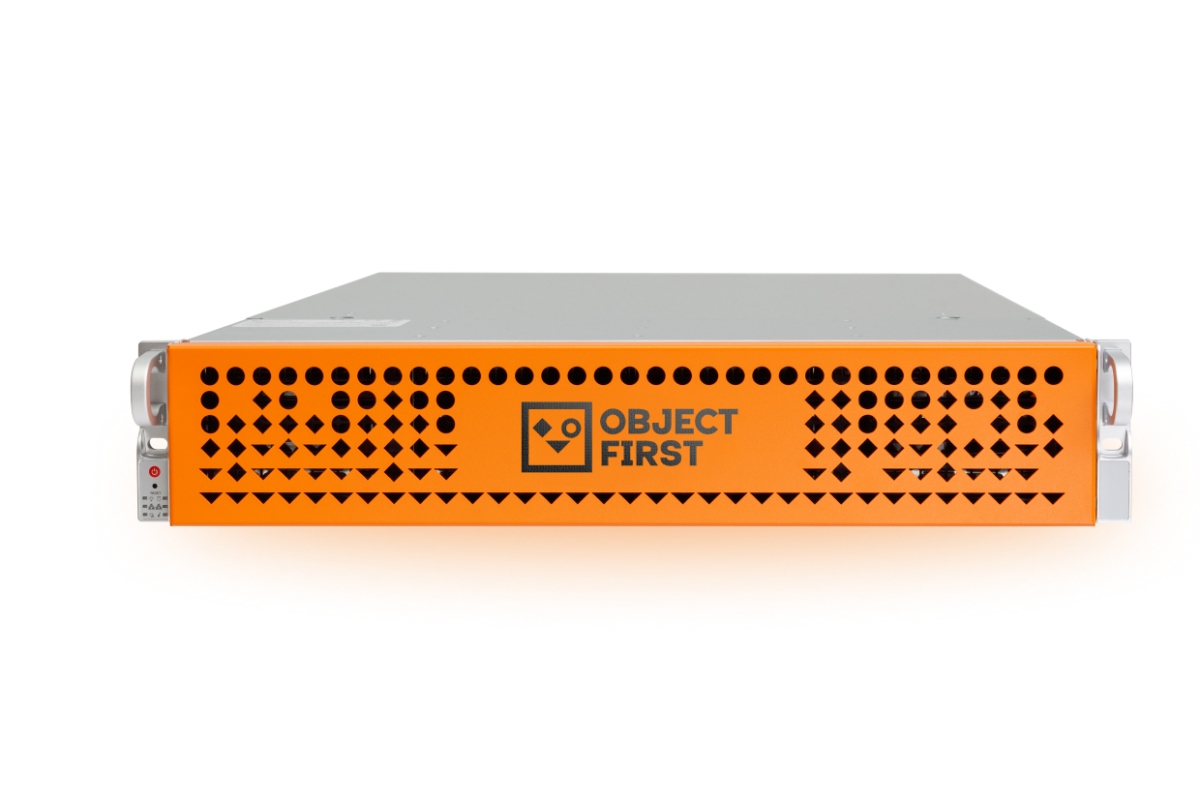News in Cloud Computing & Data Storage
Data Centre Infrastructure News & Trends
Enterprise Network Infrastructure: Design, Performance & Security
Features
News in Cloud Computing & Data Storage
OpenNebula validated with NVIDIA Spectrum-X
OpenNebula Systems has today announced that its cloud management and virtualisation platform, OpenNebula, has been validated by NVIDIA as an orchestration platform integrated with NVIDIA Spectrum-X Ethernet networking.
OpenNebula is used as a multi-tenant platform for AI factories, providing isolation, governance, and lifecycle management for accelerated infrastructure. The company says the validation supports the deployment of AI-ready cloud infrastructure using Spectrum-X Ethernet.
Spectrum-X Ethernet is designed for AI networking environments, where latency, congestion, and jitter can affect large-scale training and multi-tenant inference workloads.
OpenNebula now integrates with the networking platform to provide a software-defined cloud environment for AI applications, with multi-tenancy across compute, GPU, and network layers on a shared Spectrum-X Ethernet fabric.
Automated orchestration for AI workloads
The integration allows OpenNebula to orchestrate tenant provisioning, network configuration, and device attachment through Spectrum-X Ethernet.
The OpenNebula control plane also runs on NVIDIA Air, which provides a platform for testing, integration, and validation.
Customers can use the environment to evaluate the integration, run simulations, and test automation workflows for AI factory deployments.
Ignacio M. Llorente, CEO of OpenNebula Systems, says, “Through our collaboration with NVIDIA, we are extending OpenNebula to support the networking and performance requirements of modern AI infrastructures.
"This integration allows customers to manage multi-tenant AI environments where NVIDIA Grace Blackwell and NVIDIA Grace Blackwell Ultra compute and Spectrum-X Ethernet networking are tightly orchestrated and optimised as a single platform.”
Amit Katz, VP of Networking at NVIDIA, adds, “OpenNebula’s integration with NVIDIA Spectrum-X Ethernet brings cloud-native agility to the AI Factory, enabling customers to orchestrate multi-tenant accelerated infrastructure with maximum performance and predictability.
"NVIDIA Air enables OpenNebula and our ecosystem partners to validate and simulate large-scale AI Factory deployments, giving customers a powerful environment to evaluate and accelerate their AI cloud strategies.”
For more from OpenNebula, click here.
Joe Peck - 10 February 2026
Data Centre Build News & Insights
Data Centre Projects: Infrastructure Builds, Innovations & Updates
Features
News in Cloud Computing & Data Storage
DataVita secures £44.9m contract with Glasgow City Council
DataVita, a UK data centre and cloud services provider, has announced it has secured a major contract with Glasgow City Council to provide the city’s core compute and storage services.
The initial agreement is valued at £44.9 million over five years and nine months and will see DataVita modernise the Council's digital backbone to underpin essential public services.
The partnership includes options for the Council to extend for multiple periods and, should the contract run for its maximum permitted duration of over 10 years, the total projected value is estimated to be between £80 million and £110 million.
Under the initial term, which began on 8 October 2025, DataVita will deliver a comprehensive suite of services from its Tier-III-certified Scottish data centres. These services will form the foundation of the Council's IT infrastructure, supporting over 400 applications that are critical to daily public services.
The scope includes providing resilient primary and disaster recovery environments, managing virtual and physical servers, scalable storage, and "robust backup solutions" featuring immutable copies for maximum data protection.
As part of the contract, up to 25 new roles will also be created, including several apprenticeships, which DataVita says reflects its "commitment to skills development and job creation within Scotland’s tech sector."
Investments in Scotland's backbone
Danny Quinn, Managing Director of DataVita, comments, "We are incredibly proud to be selected as a strategic partner for Glasgow City Council. We are focused on delivering exceptional value and innovation over the initial term and see this as the start of a long-term partnership.
"Our mission is to provide a resilient, secure, and sustainable digital infrastructure that will not only meet the city's needs today, but also support its ambitions for the future. This award is a testament to our team's expertise and our commitment to investing in Scotland's technology ecosystem."
As part of Glasgow's transition to a multi-source IT delivery model, DataVita will integrate with the Council's Service Integration and Management (SIAM) function, aiming to ensure efficient and collaborative service delivery alongside other partners.
Paul Leinster, Chair of the Digital Glasgow Board from Glasgow City Council, says, “The essential services that we deliver to citizens and the value they add to people’s lives are always our first priorities.
“Increasingly, though, we rely on a complex digital estate to deliver those services, and this contract will ensure we have a secure, resilient platform to support what is an incredibly diverse range of work.
"DataVita brings proven capability here in Scotland, and their commitment to renewable, energy‑efficient operations aligns with Glasgow’s ambitions for a cleaner, greener city.”
For more from DataVita, click here.
Joe Peck - 6 February 2026
Data Centre Build News & Insights
Data Centre Projects: Infrastructure Builds, Innovations & Updates
Features
News in Cloud Computing & Data Storage
Integral triples capacity at Equinix SG1
Integral, a currency technology provider to the financial markets, has tripled the size of its presence at the Equinix SG1 data centre in Singapore to accommodate reported soaring regional demand.
The company is also leveraging digital infrastructure company Equinix’s software-defined interconnection, Equinix Fabric, to establish private and direct connections to cloud services providers, as well as key partners and customers.
This expansion comes amid increased transaction volumes and system load, with Integral now processing over one million tickets daily at Equinix SG1.
Equinix operates a global network of over 270 International Business Exchange (IBX) facilities, providing infrastructure for advanced connectivity and colocation.
Connecting clients in Asia-Pacific
Integral’s SG1 data facility is employed to service clients not only based in Singapore, but across the Asia-Pacific. The news is directly correlated with the company’s growth in the region, with numerous client partnerships established in the past year.
To service this expanding client base, Integral says it is committed to ongoing investment in infrastructure which "supports scalability, reliability, and optimal efficiency."
Data is a crucial element of this dynamic and underpins the decision to triple infrastructure footprint at the SG1 data facility. The expansion aims to enable Integral to manage the increase in transaction volumes without a decline in speed or performance.
Alongside Singapore (SG1), Integral also operates infrastructure within Equinix data centers in New York (NY4), Tokyo (TY4), and London (LD3).
Yee May Leong, Managing Director, Singapore at Equinix, comments, "We are thrilled to support Integral in their significant expansion in SG1. This growth not only reflects Integral's commitment to meeting the soaring demand in the financial markets, but also underscores the trust they place in Equinix as a strategic partner.
"Our robust finance ecosystem, combined with our global footprint and seamless access to leading cloud service providers, empowers Integral to deliver unparalleled performance and reliability to their clients across the Asia-Pacific region.
"We look forward to continuing our collaboration and enabling Integral to thrive in this dynamic landscape."
Harpal Sandhu, CEO of Integral, adds, “For over three decades, Integral has remained resolute in its support of the growing institutional and retail trading landscape across APAC, increasing our established customer base and strengthening the local liquidity ecosystem.
"Singapore has been a key market for accelerating our regional presence, and the expansion of our SG1 data facility represents our commitment to ensuring our clients have access to the most sophisticated and agile cloud-based infrastructure possible.”
Joe Peck - 13 January 2026
Features
News
News in Cloud Computing & Data Storage
Telehouse Canada, Megaport partner to expand cloud options
Telehouse Canada, an operator of colocation data centres, has announced a strategic partnership with Network-as-a-Service (NaaS) provider Megaport, expanding cloud connectivity capabilities across its Canadian data centre portfolio.
The agreement enables Telehouse Canada customers to access Megaport’s global ecosystem, which includes more than 280 cloud on-ramps and over 300 service providers.
Through the integration, organisations can establish scalable, private connections to leading cloud platforms and global IT services directly from Telehouse Canada facilities.
Customers can access the Megaport Portal from all Telehouse Canada data centres, allowing them to design flexible, high-performance network architectures that support hybrid and multi-cloud workloads, as well as more traditional enterprise use cases.
Simplified networking and AI-focused connectivity
By leveraging Megaport’s global platform, organisations can scale connectivity on demand and streamline network operations. Services available include Megaport Cloud Router, which enables direct data transfer between multiple cloud environments, and API-based integration to automate deployment and ongoing management.
Atsushi Kubo, President and CEO of Telehouse Canada, says the partnership enhances the value of its data centre ecosystem, stating, “This collaboration reflects our shared commitment to delivering high-quality, efficient connectivity.
"Alongside colocation, we are providing customers with access to a highly interconnected environment that supports growth and reduces complexity through Megaport’s platform.”
The partnership also provides access to Megaport’s AI Exchange (AIx), a connectivity ecosystem designed to support AI-driven workloads.
AIx enables organisations to interconnect with GPU-as-a-Service providers, neocloud platforms, third-party AI models, and storage and compute resources, supporting the rapid delivery of AI services at a global scale.
Michael Reid, CEO of Megaport, notes, “As organisations operate across increasingly complex environments, connectivity and compute must work seamlessly together.
"Partnering with Telehouse Canada allows us to extend our capabilities into a strong local ecosystem, giving customers the foundations required to support advanced workloads today and adapt as their needs evolve.”
Telehouse Canada and Megaport say they plan to continue developing the partnership, with a shared focus on strengthening secure, high-performance digital infrastructure to support Canadian organisations and international connectivity requirements.
For more from Telehouse, click here.
Joe Peck - 22 December 2025
Features
News in Cloud Computing & Data Storage
Products
Enecom upgrades data storage with Infinidat's InfiniBox
Infinidat, a provider of enterprise data storage systems, has announced that Enecom, a Japanese ICT services provider operating primarily in the Chugoku region, has upgraded its enterprise data infrastructure using multiple InfiniBox storage systems.
Enecom has deployed five InfiniBox systems across its environment. Two systems support the company’s EneWings enterprise cloud service, two are used for internal virtual infrastructure, and one is dedicated to backup and verification.
The deployment is intended to support service availability, scalability, and resilience as data volumes increase.
According to Enecom, the investment was driven by customer requirements for high system reliability, concerns around cyber security, and the rising cost and operational impact of legacy storage platforms.
Masayuki Chikaraishi, Solution Service Department, Solution Business Division at Enecom, says, “When we were choosing how to upgrade our storage infrastructure, our customers told us that system reliability was particularly important and that the threat of damage caused by cyberattacks was a major concern.
"We also had to address the rising costs of the legacy systems and the fallout when hardware failures occurred. For the longer term, we needed to be proactive to be able to handle the expected future growth in cloud demand and to strengthen the appeal of our EneWings brand.”
Availability and cyber resilience focus
Enecom says it is using an active-active configuration across two InfiniBox systems to maintain service continuity during maintenance and software upgrades.
Takashi Ueki, Solution Service Department, Solution Business Division at Enecom, notes, “Many of our customers are concerned that even the slightest outage will affect their business.
"By using two InfiniBox systems in an active-active cluster configuration, we can continue to provide services with higher reliability and peace of mind without interruption, even when performing maintenance or software version upgrades.”
Cyber resilience was also a key consideration. Enecom is using InfiniSafe features within the InfiniBox platform, including immutable snapshots and recovery capabilities, to support rapid restoration following cyber incidents.
Masayuki continues, “InfiniBox provides high-speed, tamper-proof, immutable snapshots creation as a standard feature to enable rapid recovery from a future cyberattack. Keeping data within Japan for data security reasons will become more important in the future.”
For more from Infinidat, click here.
Joe Peck - 19 December 2025
Artificial Intelligence in Data Centre Operations
Data Centre Operations: Optimising Infrastructure for Performance and Reliability
Features
News in Cloud Computing & Data Storage
Europe races to build its own AI backbone
Recent outages across global cloud infrastructure have once again served as a reminder of how deeply Europe depends on foreign hyperscalers. When platforms run on AWS or services protected by Cloudflare fail, European factories, logistics hubs, retailers, and public services can stall instantly.
US-based cloud providers currently dominate Europe’s infrastructure landscape. According to market data, Amazon, Microsoft, and Google together control roughly 70% of Europe’s public cloud market. In contrast, all European providers combined account for only about 15%. This share has declined sharply over the past decade. For European enterprises, this means limited leverage over resilience, performance, data governance, and long-term sovereignty.
This same structural dependency is now extending from cloud infrastructure directly into artificial intelligence and its underlying investments. Between 2018 and 2023, US companies attracted more than €120 billion (£104 billion) in private AI investment, while the European Union drew about €32.5 billion (£28 billion) over the same period.
In 2024 alone, US-based AI firms raised roughly $109 billion (£81 billion), more than six times the total private AI investment in Europe that year. Europe is therefore trying to close the innovation gap while simultaneously tightening regulation, creating a paradox in which calls for digital sovereignty grow louder even as reliance on non-European infrastructure deepens.
The European Union’s Apply AI Strategy is designed to move AI out of research environments and into real industrial use, backed by more than one billion euros in funding. However, most of the computing power, cloud platforms, and model infrastructure required to deploy these systems at scale still comes from outside Europe. This creates a structural risk: even as AI adoption accelerates inside European industry, much of the strategic control over its operation may remain in foreign hands.
Why industrial AI is Europe’s real monitoring ground
For any large-scale technology strategy to succeed, it must be tested and refined through real-world deployment, not only shaped at the policy level. The effectiveness of Europe’s AI push will ultimately depend on how quickly new rules, funding mechanisms, and technical standards translate into working systems, and how fast feedback from practice can inform the next iteration.
This is where industrial environments become especially important. They produce large amounts of real-time data, and the results of AI use are quickly visible in productivity and cost. As a result, industrial AI is becoming one of the main testing grounds for Europe’s AI ambitions. The companies applying AI in practice will be the first to see what works, what does not, and what needs to be adjusted.
According to Giedrė Rajuncė, CEO and co-founder of GREÏ, an AI-powered operational intelligence platform for industrial sites, this shift is already visible on the factory floor, where AI is changing how operations are monitored and optimised in real time.
She notes, “AI can now monitor operations in real time, giving companies a new level of visibility into how their processes actually function. I call it a real-time revolution, and it is available at a cost no other technology can match. Instead of relying on expensive automation as the only path to higher effectiveness, companies can now plug AI-based software into existing cameras and instantly unlock 10–30% efficiency gains.”
She adds that Apply AI reshapes competition beyond technology alone, stating, “Apply AI is reshaping competition for both talent and capital. European startups are now competing directly with US giants for engineers, researchers, and investors who are increasingly focused on industrial AI. From our experience, progress rarely starts with a sweeping transformation. It starts with solving one clear operational problem where real-time detection delivers visible impact, builds confidence, and proves return on investment.”
The data confirms both movement and caution. According to Eurostat, 41% of large EU enterprises had adopted at least one AI-based technology in 2024. At the same time, a global survey by McKinsey & Company shows that 88% of organisations worldwide are already using AI in at least one business function.
“Yes, the numbers show that Europe is still moving more slowly,” Giedrė concludes. “But they also show something even more important. The global market will leave us no choice but to accelerate. That means using the opportunities created by the EU’s push for AI adoption before the gap becomes structural.”
Joe Peck - 8 December 2025
Cyber Security Insights for Resilient Digital Defence
Data Centre Security: Protecting Infrastructure from Physical and Cyber Threats
Features
News in Cloud Computing & Data Storage
OpenNebula, Canonical partner on cloud security
OpenNebula Systems, a global open-source technology provider, has formed a new partnership with UK developer Canonical to offer Ubuntu Pro as a built-in, security-maintained operating system for hypervisor nodes running OpenNebula.
The collaboration is intended to streamline installation, improve long-term maintenance, and reinforce security and compliance for enterprise cloud environments.
OpenNebula is used for virtualisation, cloud deployment, and multi-cluster Kubernetes management. It integrates with a range of technology partners, including NetApp and Veeam, and is supported by relationships with NVIDIA, Dell Technologies, and Ampere.
These partnerships support its use in high-performance and AI-focused environments.
Beginning with the OpenNebula 7.0 release, Ubuntu Pro becomes an optional operating system for hypervisor nodes.
Canonical’s long-term security maintenance, rapid patch delivery, and established update process are designed to help teams manage production systems where new vulnerabilities emerge frequently.
Integrated security maintenance for hypervisor nodes
With Ubuntu Pro embedded into OpenNebula workflows, users will gain access to extended security support, expedited patching, and coordinated lifecycle updates.
The approach aims to reduce operational risk and maintain compliance across large-scale, distributed environments.
Constantino Vázquez, VP of Engineering Services at OpenNebula Systems, explains, “Our mission is to provide a truly sovereign and secure multi-tenant cloud and edge platform for enterprises and public institutions.
"Partnering with Canonical to integrate Ubuntu Pro into OpenNebula strengthens our customers’ confidence by combining open innovation with long-term stability, security, and compliance.”
Mark Lewis, VP of Application Services at Canonical, adds, “Ubuntu Pro provides the secure foundation that modern cloud and AI infrastructures demand.
"By embedding Ubuntu Pro into OpenNebula, we are providing enterprises [with] a robust and compliance-ready environment from the bare metal to the AI workload - making open source innovation ready for enterprise-grade operations.”
Joe Peck - 2 December 2025
Data Centre Operations: Optimising Infrastructure for Performance and Reliability
Edge Computing in Modern Data Centre Operations
Features
News in Cloud Computing & Data Storage
365, Robot Network unveil AI-enabled private cloud platform
365 Data Centers (365), a provider of network-centric colocation, network, cloud, and other managed services, has announced a partnership with Robot Network, a US provider of edge AI platforms, to deliver a new AI-enabled private cloud platform for enterprise customers.
Hosted within 365’s cloud infrastructure, the platform supports small-language models, analytics, business intelligence, and cost optimisation, marking a shift in how colocation facilities can function as active layers in AI optimisation.
Integrating AI capabilities into colocation environments
Building on 365’s experience in colocation, network, and cloud services, the collaboration seeks to enable data processing and intelligent operations closer to the edge.
The model allows more than 90% of workloads to be handled within the data centre, using high-density AI only where necessary.
This creates a hybrid AI architecture that turns colocation from passive hosting into an active optimisation environment, lowering operational costs while allowing AI to run securely within compact, high-density footprints.
Derek Gillespie, CEO of 365 Data Centers, says, “Our objective is to meet AI where colocation, connectivity, and cloud converge.
"This platform will provide seamless integration and economies of scale for our customers and partners, giving them access to AI that is purpose-built for their business initiatives.”
Initial enterprise use cases will be supported by a proprietary AI platform that integrates both small and large language models.
Supporting AI adoption across enterprise operations
Jacob Guedalia, CEO of Robot Network, comments, “We’re pleased to partner with 365 Data Centers to bring this unique offering to market. 365 is a forward-thinking partner with strong colocation capabilities and operational experience.
"By combining our proprietary stack - optimised for AMD EPYC processors and NVIDIA GPUs - with their infrastructure, we’re providing a trusted platform that makes advanced AI accessible and affordable for enterprises.
"Our system leverages small AI models from organisations such as Meta, OpenAI, and Grok to extend AI capabilities to a broader business audience.”
365 says the new platform underlines its strategy to evolve as an infrastructure-as-a-service provider, helping enterprises adopt AI-driven tools and improve efficiency through secure, flexible, and data-informed operations.
The company notes it continues to focus on enabling digital transformation across colocation and cloud environments while maintaining reliability and scalability.
For more from 365 Data Centers, click here.
Joe Peck - 13 November 2025
News
News in Cloud Computing & Data Storage
ZainTECH launches Microsoft Azure ExpressRoute in Kuwait
ZainTECH, the digital solutions and cloud services arm of Kuwait-based Zain Group, in collaboration with Zain Kuwait and Zain Omantel International (ZOI), has announced the availability of Microsoft Azure ExpressRoute on the Azure Marketplace.
The move enables government and enterprise customers in Kuwait to access secure and private connectivity to Microsoft Azure directly through the Azure Marketplace.
The listing allows organisations with existing Azure agreements to purchase ExpressRoute using their existing Microsoft Azure consumption credits, designed to simplify procurement and integration with cloud infrastructure.
Dedicated, compliant cloud connectivity
ExpressRoute provides a dedicated, low-latency connection to Microsoft data centres in the UAE and Europe.
According to ZainTECH, the service is aimed at supporting mission-critical workloads that require high performance, enhanced security, and compliance with Kuwait’s national data residency and regulatory standards.
Andrew Hanna, CEO of ZainTECH, comments, “Helping governments and enterprises become more digital, intelligent, and resilient is what all Zain entities aim for.
"The availability of ExpressRoute on the Azure Marketplace is a game-changer for customers in Kuwait. It removes friction from the procurement process and makes it easier than ever for entities to leverage Microsoft’s cloud, using their existing agreements and credits.
"This is how we accelerate real transformation: by combining secure, high-speed connectivity with operational simplicity.”
ZainTECH says that its collaboration with Zain Kuwait, ZOI, and Microsoft establishes a new framework for compliant and resilient cloud connectivity in Kuwait.
The initiative also aligns with Kuwait’s Vision 2035 strategy, supporting national digital transformation efforts and enabling government and enterprise modernisation.
Joe Peck - 13 October 2025
News
News in Cloud Computing & Data Storage
Products
Object First launches 'ransomware-proof' storage
Object First, a US provider of storage appliances, has introduced Ootbi Mini, a compact immutable storage appliance designed for remote and branch offices, edge environments, and small businesses using Veeam for backup.
The device is intended to protect local backup data against ransomware attacks without requiring a traditional data centre setup.
Available in 8, 16, and 24 terabyte capacities, Ootbi Mini brings the company’s existing enterprise-level security to a smaller form factor.
Built on 'zero trust' principles, it provides what the company describes as “absolute immutability”, meaning that no one - including administrators - can alter its firmware, operating system, storage layer, or backup data.
The device offers the same data protection, user interface, and Veeam integration as Object First’s existing Ootbi systems, with minimal setup required.
Ootbi Mini will be available for purchase or through a subscription model, with deliveries due to begin in January 2026.
New additional features
Alongside Ootbi Mini, Object First has announced several additional updates:
The first, Ootbi Honeypot, introduces early warning protection against cyberthreats targeting Veeam Backup and Replication (VBR). The feature, available in version 1.7 at no additional cost to current customers, deploys a decoy VBR environment to detect suspicious activity.
If a threat is detected, Honeypot immediately sends an alert via the customer’s chosen communication channel.
The company has also launched a beta programme for Ootbi Fleet Manager, a cloud-based platform that allows customers to monitor and manage their entire Ootbi fleet from a single dashboard.
The system provides granular monitoring, reporting, and hardware health insights, enabling customers to maintain visibility across distributed environments.
Phil Goodwin, Research Vice President at IDC, comments, “Organisations running Veeam can benefit from storage technologies that combine immutability, simplicity, and resilience.
"With Ootbi Mini, Honeypot, and Fleet Manager, Object First is expanding its ransomware-proof portfolio to meet the needs of businesses of all sizes.”
David Bennett, CEO at Object First, adds, “Our mission is to make ransomware-proof backups simple, powerful, and accessible for every Veeam user. With Ootbi Mini, any organisation can achieve enterprise-grade immutability within a small footprint.
"Honeypot strengthens cyber resilience by providing early threat detection, while Fleet Manager simplifies how customers monitor their deployments. Together, these innovations reinforce our commitment to secure, straightforward, and reliable backup for Veeam users.”
For more from Object First, click here.
Joe Peck - 10 October 2025

Head office & Accounts:
Suite 14, 6-8 Revenge Road, Lordswood
Kent ME5 8UD
T: +44 (0)1634 673163
F: +44 (0)1634 673173









